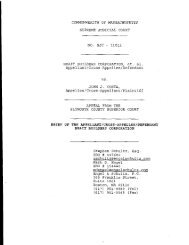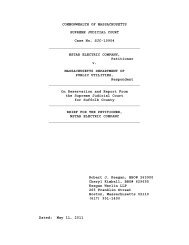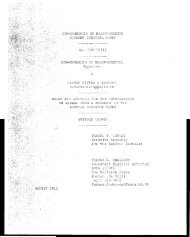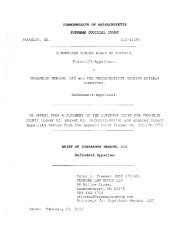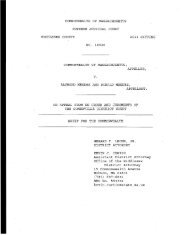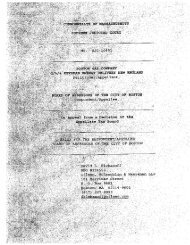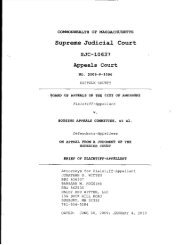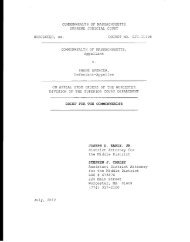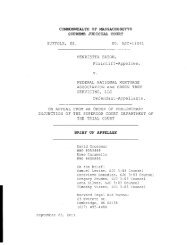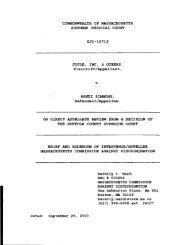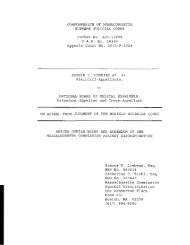462 Mass. 1 Appellant Ray Brief - Mass Cases
462 Mass. 1 Appellant Ray Brief - Mass Cases
462 Mass. 1 Appellant Ray Brief - Mass Cases
Create successful ePaper yourself
Turn your PDF publications into a flip-book with our unique Google optimized e-Paper software.
Commonwealth (R. 33-34).<br />
-4-<br />
ARGUMENT<br />
THE INDICTMENTS MUST BE DISMISSED ON DOUBLE JEOPARDY<br />
GROUNDS BECAUSE THE JUDGE DECLARED THE JURY TO BE DEAD<br />
LOCKED AND TERMINATED THE TRIAL OVER THE DEFENDANT'S<br />
OBJECTION WHEN THERE WAS NO "MANIFEST NECESSITY" TO DO<br />
so.<br />
A. Introduction<br />
The defendant's trial was terminated when the judge<br />
declared a mistrial, over the defendant's objection,<br />
when the jury first indicated that it was deadlocked.<br />
Under these circumstances, there was no "manifest<br />
necessity" to declare a mistrial because the judge had<br />
other alternatives. Specifically, the judge had the<br />
alternative of giving the Tuey-Rodriguez instruction!/<br />
as both counsel requested. Under these circumstances,<br />
denial of the defendant's Motion to Dismiss was errone-<br />
ous. The retrial of the defendant would constitute<br />
double jeopardy in violation of the defendant's right<br />
to not "be twice put in jeopardy of life or limb" under<br />
the Fifth and Fourteenth Amendments to the United<br />
States Constitution, and the statutory and common law<br />
! 1 see Commonwealth v. Tuey, 62 <strong>Mass</strong>. 1 (1851), and<br />
Commonwealth v. Rodriguez, 364 <strong>Mass</strong>. 87 (1973).



